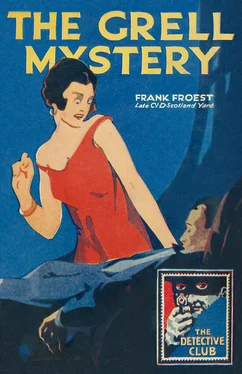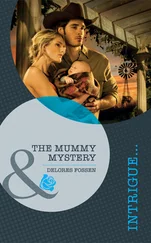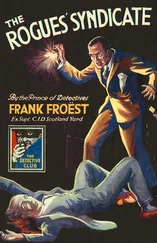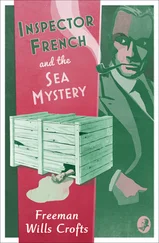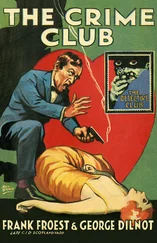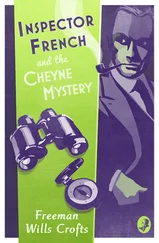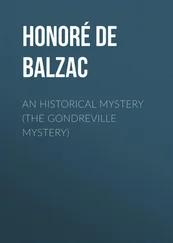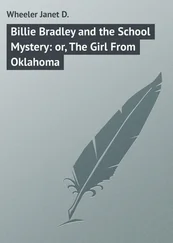‘Yes. It’s bad—bad,’ agreed the Assistant Commissioner. ‘The Press must not hear of this.’
‘Trust me,’ said Foyle grimly. ‘The Press won’t.’
‘I don’t like this affair of Lady Eileen Meredith,’ went on Sir Hilary. ‘After all, she has a good right to know the truth. Wouldn’t it be better to let her know that Grell is alive?’
Foyle jingled some money in his trousers pocket.
‘I hate it as much as you do, Sir Hilary. I can’t take any chances, though. Grell knows we know he is alive. When he finds that this girl has not been told he may try to communicate with her, and then we may be able to lay hands on him and Ivan, and so clear up the mystery. There’s another thing. As far as our inquiries through his solicitors and the bank go, he couldn’t have had much ready cash on him. He’ll try to get some sooner or later—probably through his friends. He’s already tried to approach Fairfield.’
‘I see,’ agreed the other in the tone of a man not quite convinced. ‘Now, when are you going down to Grave Street again? You’ll want at least a dozen men.’
‘There won’t be any trouble at Grave Street,’ answered Foyle with a smile; ‘and if there is, Green and I will have to settle it. More men would only be in the way. Our first job is to get hold of Waverley.’
‘But only two of you! Grave Street isn’t exactly a nice place. If there is trouble—’
‘We’ll risk that, sir,’ said Foyle, stiffening a trifle.
He went back to his own room and signed a few letters. Some words through a speaking-tube brought Green in, stolid, gloomy, imperturbable. The chief inspector accepted and lit a cigar. Through a cloud of smoke the two men talked for a while. They were going on a mission that might very easily result in death. No one would have guessed it from their talk, which, after half an hour of quiet, business-like conversation, drifted into desultory gossip and reminiscences.
‘Sir Hilary wanted me to take a dozen men,’ said Foyle. ‘I told him the two of us would be plenty.’
‘Quite enough, if we’re to do anything,’ agreed Green. ‘I wouldn’t be out of it for a thousand. Poor old Waverley and I have put in a lot of time together. I guess I owe him my life, if it comes to that.’
Foyle interjected a question. The chief inspector lifted his cigar tenderly from his lips.
‘It was in the old garrotting days,’ he said. ‘Waverley and I were coming down the Tottenham Court Road a bit after midnight—just off Seven Dials. There were half-a-dozen men hanging about a corner, and one of them tiptoed after us with a pitch plaster—you’ll remember they used to do the stuff up in sacking and pull it over your mouth from behind. I never noticed anything, but Waverley did. The man was just about to throw the thing over me when Waverley wheeled round and hit him clean across the face with a light cane he was carrying. The chap was knocked in the gutter and his pals came at us with a rush. A hansom driver shouted to us to leave the man in the roadway to him, and hanged if he didn’t drive clean over him with the near-side wheel. That gave us our chance. We hopped into the cab and got away without staying to see if anyone was hurt. But if Waverley hadn’t hit out when he did I’d have been a goner.’
‘I had a funny thing happen to me once in the Tottenham Court Road,’ said Foyle reminiscently. ‘I was an inspector then and big Bill Sladen was working with me—he had a beautiful tenor voice, you will remember. We were after a couple of confidence men and had a man we were towing about to identify them. Well, we got ’em down to a saloon bar near the Oxford Street end, but I daren’t go in because they knew me. It was a bitter cold night, with a cold wind and snow and sleet. So I stayed on the opposite side of the road and induced Bill to go over and sing “I am but a Poor Blind Boy”, in the hope that our birds would call him in and give him a drink. He hadn’t been at it five minutes before a fiery, red-headed little potman had knocked him head over heels in the gutter and told him to go away. Bill could have broken the chap in two with his little finger, but he daren’t do anything. He came over to me and I sent him back again. This time he did get invited inside. And there he stayed for a full hour, while the witness and I stood shivering and wet and miserable in the snow. We could hear him laughing and singing with the best of ’em. They wouldn’t let him come away. It was not until I took all risks and marched in with the witness and arrested them that they tumbled to the fact that he wasn’t a real street singer.’ He glanced at his watch. ‘You’d better go and have a rest, Green. Meet me here at half-past twelve. We’ll take a taxi to Aldgate and walk up from there. And, by the way, here’s a pistol. I needn’t tell you not to use it unless you’ve got to.’
A BITTER wind was sweeping the Commercial Road, Whitechapel, as the two detectives, each well muffled up, descended from their cab and walked briskly eastwards. Save for a slouching wayfarer or two, shambling unsteadily along, and little groups gathered about the all-night coffee-stalls, the roads were deserted. Neither man had attempted any disguise. It was not necessary now.
As they turned into Grave Street they automatically walked in the centre of the roadway. There are some places where it is not healthy to walk at night on shadowed pavements. They moved without haste and without loitering, as men who know exactly what they have to do. From one of the darkened houses a woman’s shrill scream issued full of rage and terror. It was followed by a man’s loud, angry tones, the thud of blows, shrieks, curses, and brutal laughter. Then the silence dropped over everything again. The two men had apparently paid no heed. Even had they been inclined to play the part of knights-errant in what was not an uncommon episode in Grave Street, they knew that the woman who had been chastised would probably have been the first to turn on them.
There was a side entrance to 404A, which was the newspaper shop that Foyle had cause to remember. He struck the grimy panel sharply with his fist and waited. There was no reply. Again he knocked, and Green, unbuttoning his greatcoat, flung it off and laid it across his arm. He could drop it easily in case of an emergency. Still there was no answer to the knock.
‘Luckily I swore out a search warrant,’ muttered Foyle, and searched in his own pockets for something. It was a jemmy of finely tempered steel gracefully curved at one end. He inserted it in a crevice of the door and, leaning his weight upon it, obtained an irresistible leverage. There was a slight crack, and it swung inwards as the screws of the hasp drew. The two men stepped within and, closing the door, stood absolutely still for a matter of ten minutes. Not a sound betrayed that their burglarious entry had alarmed anyone.
Presently Green made a movement, and a vivid shaft of light from a pocket electric lamp played along the narrow uncarpeted passage. The superintendent gripped his jemmy tightly and turned towards the dirty stairs. Then the light vanished as quickly as it had flared up, and from above there came a sound of shuffling footsteps. Even Heldon Foyle, whom no one would have accused of nervousness, felt his heart beat a trifle more quickly. He knew that if he were as near the heart of the mystery as he believed any second might see shooting. Penned as he and his companion were in the narrow space of the passage barely three feet wide, a shot fired from above could scarcely miss.
Crouching low, he sprang up the narrow staircase in three bounds, making scarcely a sound. On the landing above he wound his arms tightly about the person whose movements he had heard and whispered a quick, tense command.
Читать дальше
